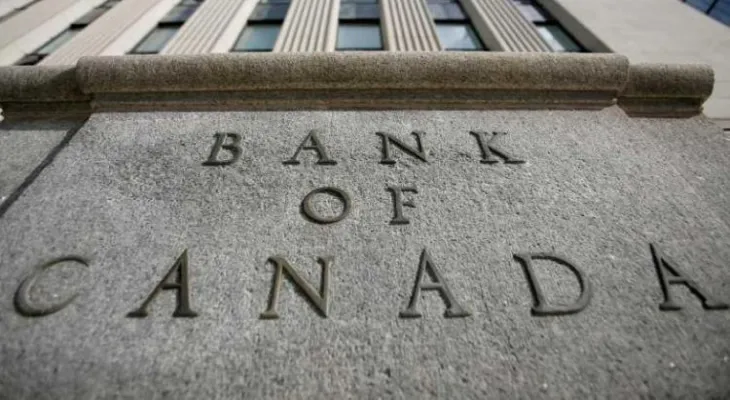Search here
Newspaper
Search here

Arab Canada News
News

Published: January 30, 2025
The Bank of Canada has cut interest rates to 3%, warning of potential negative impacts due to the trade war with the United States. While the bank expects the economy to gradually recover, it has also lowered its economic growth forecasts due to new immigration policies. It also indicated that tariffs imposed by Trump could reduce exports and increase economic challenges in the country.
Today, Wednesday, the Bank of Canada has reduced the key interest rate by 0.25 percentage points to 3%, while revising its economic growth forecasts downward, warning that a potential trade war with the United States could cause significant harm to the Canadian economy.
The central bank explained in a statement that "the economy is expected to recover gradually while inflation remains close to the target set at 2%," but it warned that President Donald Trump's intention to impose a 25% tariff on all products coming from Canada starting February 1 will constitute a test for the strength of the Canadian economy.
The bank added that "a prolonged trade dispute is likely to lead to a decline in GDP and rising prices in Canada."
Sixth consecutive interest rate cut
This decision marks the sixth consecutive interest rate cut in the country, as the central bank emphasized that "low interest rates boost household spending." In December, the annual inflation rate slightly decreased to 1.8% compared to 1.9% in November, while the unemployment rate fell to 6.7% (-0.1 percentage points).
Despite the recent recovery in economic activity, the bank has revised its growth forecasts downwards to 1.8% for 2025 and 2026, compared to previous forecasts of 2.1% and 2.3% respectively. The bank attributed this decline to a slowdown in population growth due to new immigration policies adopted by Ottawa.
Impact of tariffs on the Canadian economy
Trump launched a new front in the trade wars just hours after his inauguration, affirming his intention to impose a 25% tariff on Canadian and Mexican imports, which Bank of Canada Governor Tiff Macklem described as "a major source of uncertainty clouding the economic outlook."
Macklem said at a press conference: "Unfortunately, tariffs make economies less efficient, leading to reduced production and income. Monetary policy cannot offset these effects, but we can help the economy adjust."
The central bank indicated that the imposition of tariffs would lead to a decline in Canadian exports and significant losses in the labor market.
Under a baseline scenario, the bank estimated that Canadian GDP growth would be 2.5 percentage points lower in the first year compared to a scenario where Trump did not follow through on his threats.
For his part, James Orlando, an economist at TD Bank, said in a research note: "We still hope that the trade threats are merely a negotiating tactic, meaning they will be temporary and have less long-term impact."
Comments